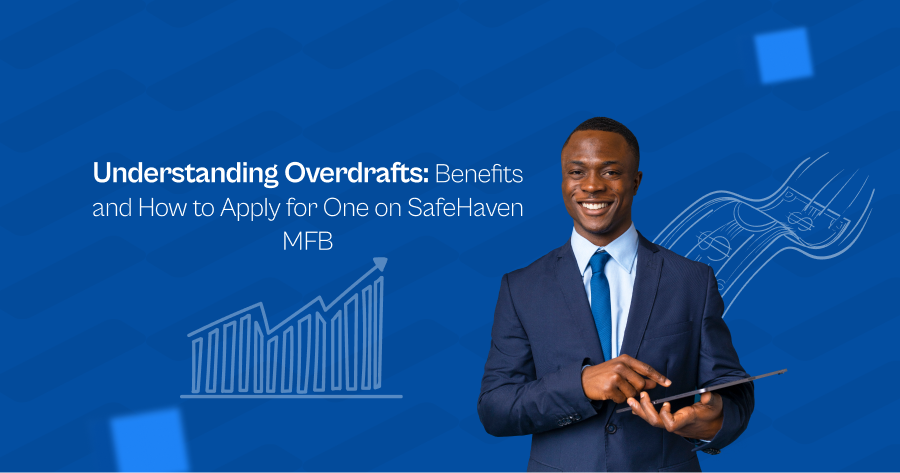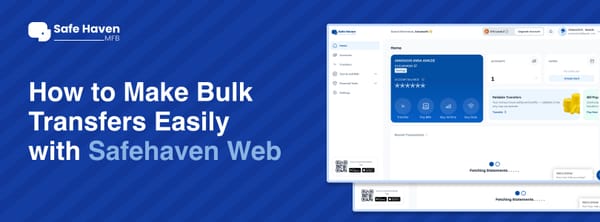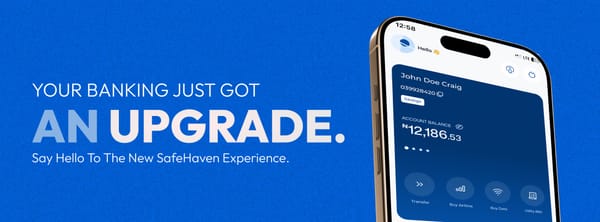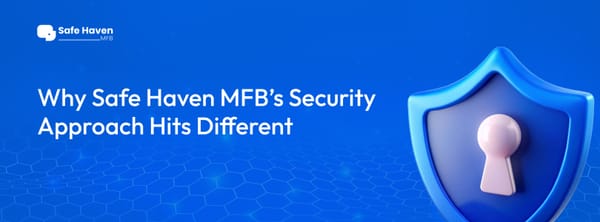Understanding Overdrafts: Benefits and How to Apply for one on SafeHaven MFB
Safe Haven MFB allows businesses to access up to ₦10,000,000 in overdraft loans.

In personal and business finance, an overdraft can serve as a valuable financial tool that offers flexibility that is tailored to your needs. This blog post will explore what an overdraft is, its benefits, the process of obtaining an overdraft from SafeHaven MFB, and how it functions.
What is an Overdraft?
An overdraft is a credit facility that allows account holders to withdraw more money than they have in their account, up to an approved limit. Essentially, it is a short-term loan provided by a bank or financial institution to cover transactions when an account balance falls below zero. This facility serves as a financial lifesaver in emergencies or when cash flow is temporarily tight.
Benefits of an Overdraft
- Immediate Access to Funds: Overdrafts provide instant access to additional funds, helping to cover unexpected expenses or urgent financial needs without requiring lengthy approval processes.
- Flexible Repayment Terms: Unlike fixed-term loans, overdrafts offer flexible repayment terms. Borrowers can repay the overdraft as soon as they have sufficient funds, reducing the amount of interest accrued.
- Safety Net for Emergencies: Overdrafts act as a financial safety net, ensuring that essential payments, such as bills or rent, are not missed due to insufficient funds.
- Improves Cash Flow Management: Businesses can use overdrafts to manage cash flow more effectively, bridging the gap between incoming and outgoing payments.
How to Get an Overdraft from SafeHaven MFB
Obtaining an overdraft from SafeHaven MFB is a straightforward process designed to provide our customers with the financial support they need promptly. Here are the steps:
- Account Review: Ensure your account with SafeHaven MFB is in good standing. This includes having a positive account history and meeting any minimum balance requirements.
- Application Submission: Submit an overdraft application form. The form will collect details about your account, income, and the desired overdraft limit.
- Documentation: Provide necessary documentation, such as identification, proof of income, and account statements. This helps us assess your creditworthiness and determine an appropriate overdraft limit.
- Approval Process: Our team will review your application and documents. If approved, you will be informed of your overdraft limit and the terms of the facility.
- Access Funds: Once approved, you can access the overdraft funds immediately, either through withdrawals, or electronic transfers.
How Does the Overdraft Work?
Once you have an overdraft facility in place, it functions as an extension of your account balance. Here’s how it works:
- Overdraft Limit: You will be granted an overdraft limit, which is the maximum amount you can overdraw from your account.
- Usage: You can use the overdraft for any transaction that exceeds your available account balance, up to the approved limit.
- Interest: Interest is charged on the overdrawn amount, calculated daily and typically debited monthly. The interest rate will be communicated to you upon approval.
- Repayment: You can repay the overdraft at any time by depositing funds into your account. Reducing the overdrawn balance as soon as possible minimizes the interest charged.
- Renewal: Depending on the terms agreed upon, the overdraft facility may need to be renewed periodically.
Following these steps above ensures that you are able to easily apply for an overdraft with SafeHaven MFB.
If you have further questions or need assistance, please don't hesitate to reach out to our customer service team via email at [email protected] or send us a message via Intercom or Twitter @SafeHavenBank.
To get started on SafeHaven as a business or individual, visit our website here. If you’re a developer looking for an open API banking infrastructure, read our API documentation here.





